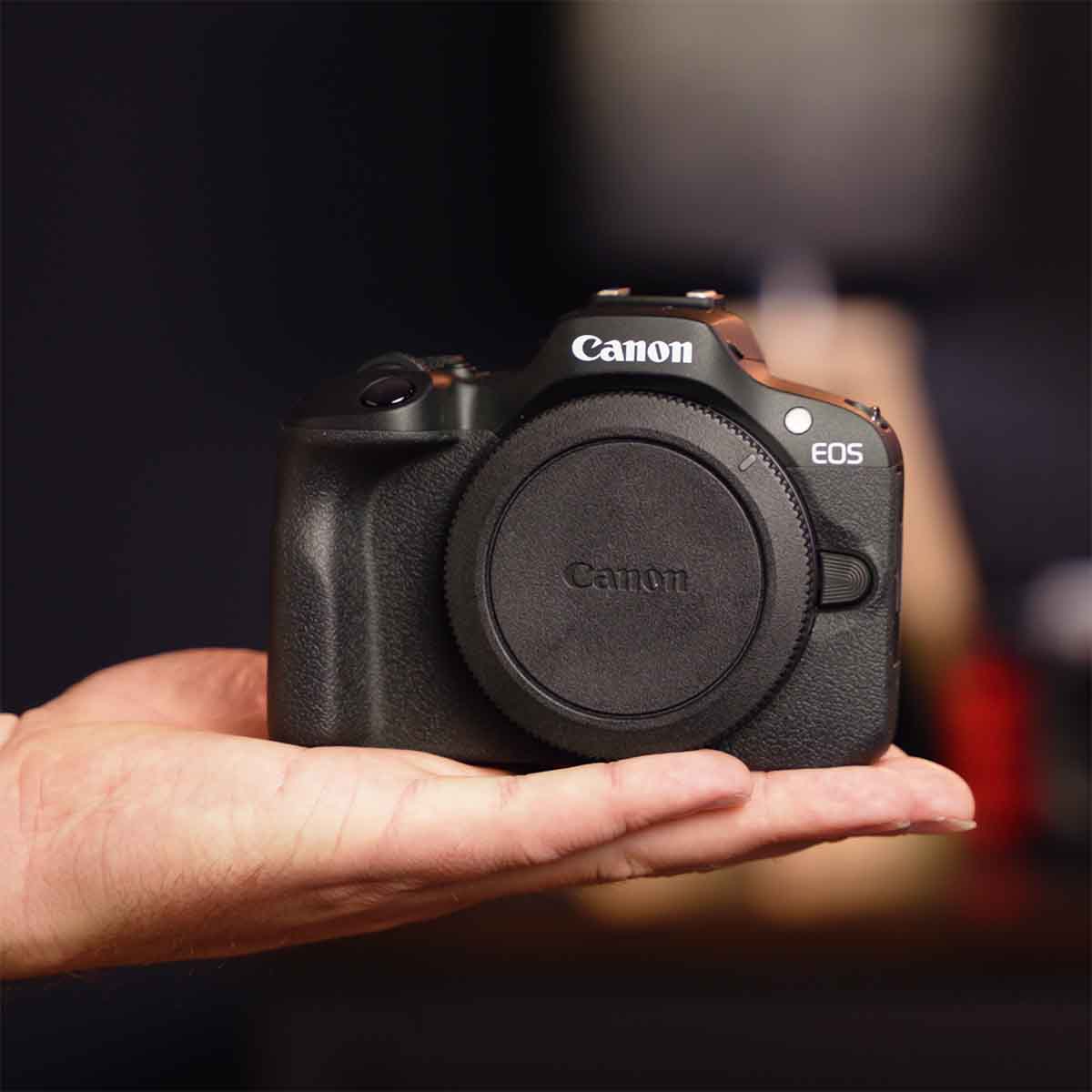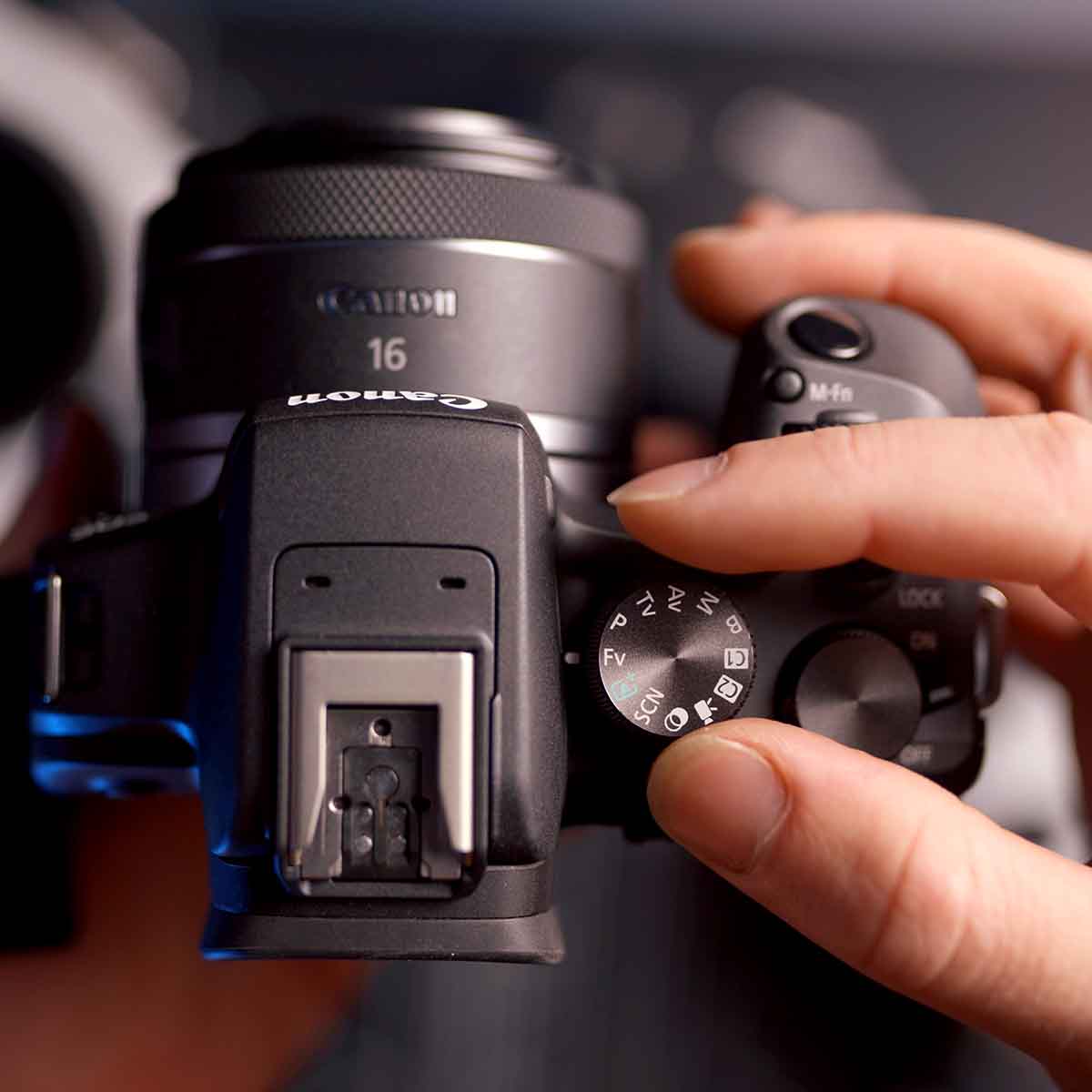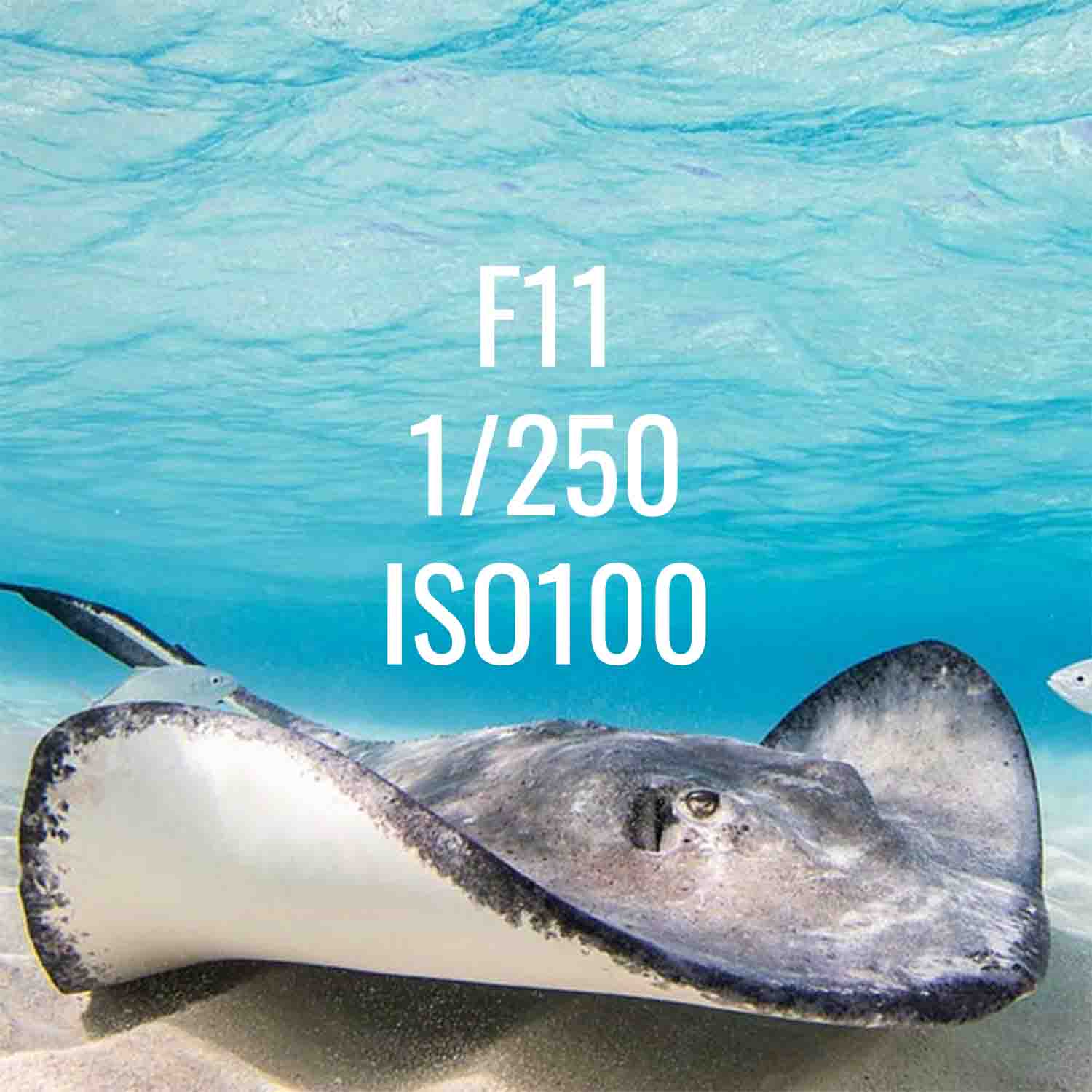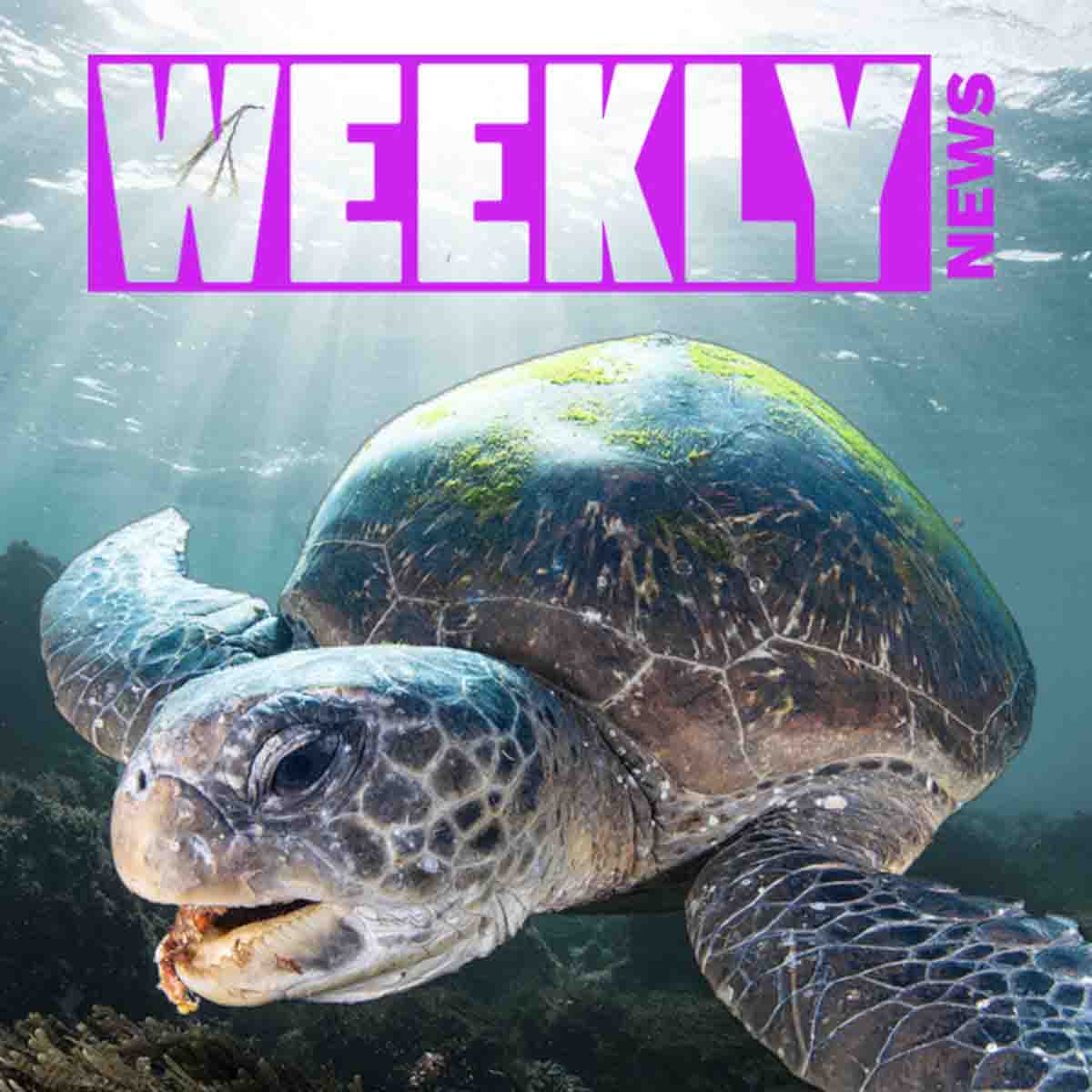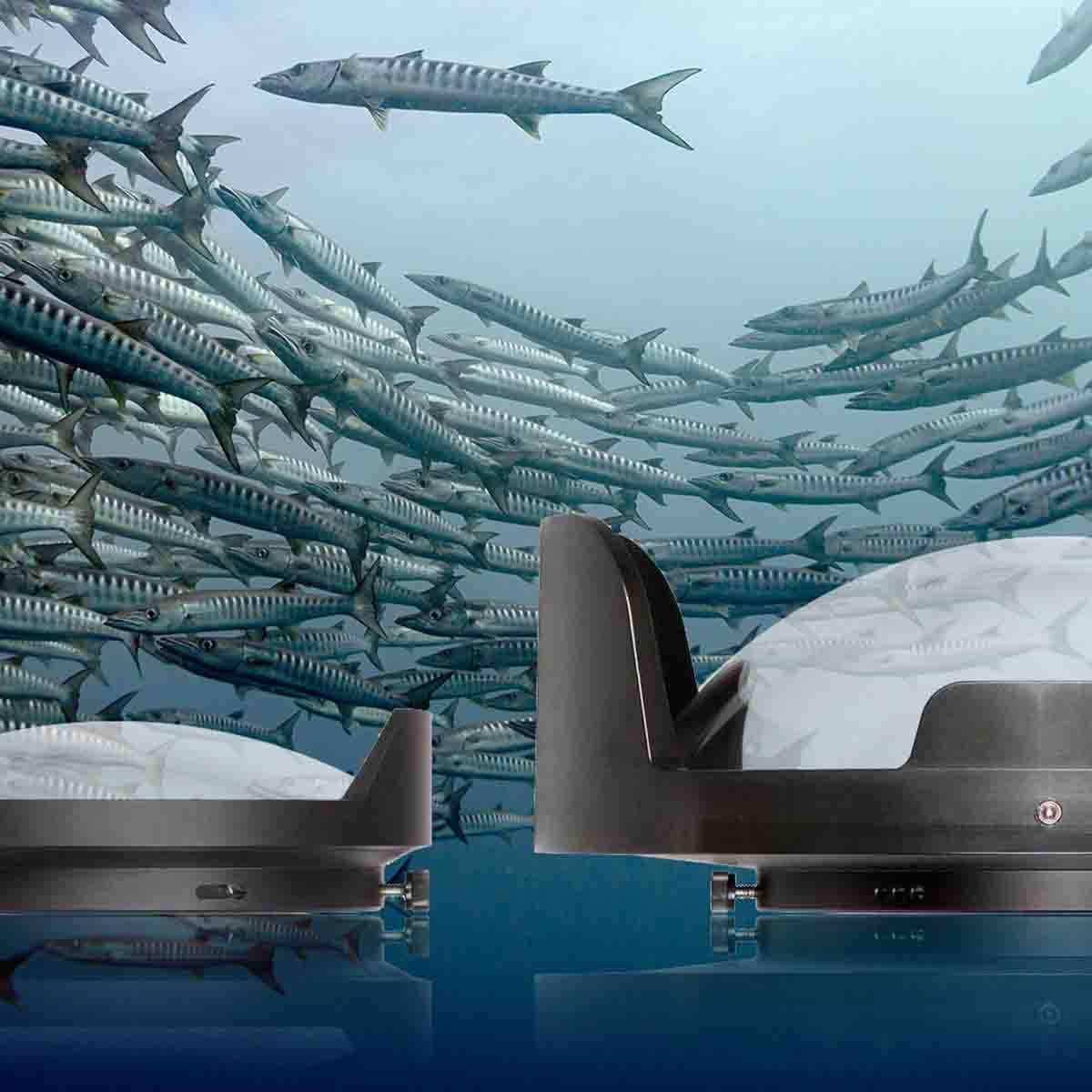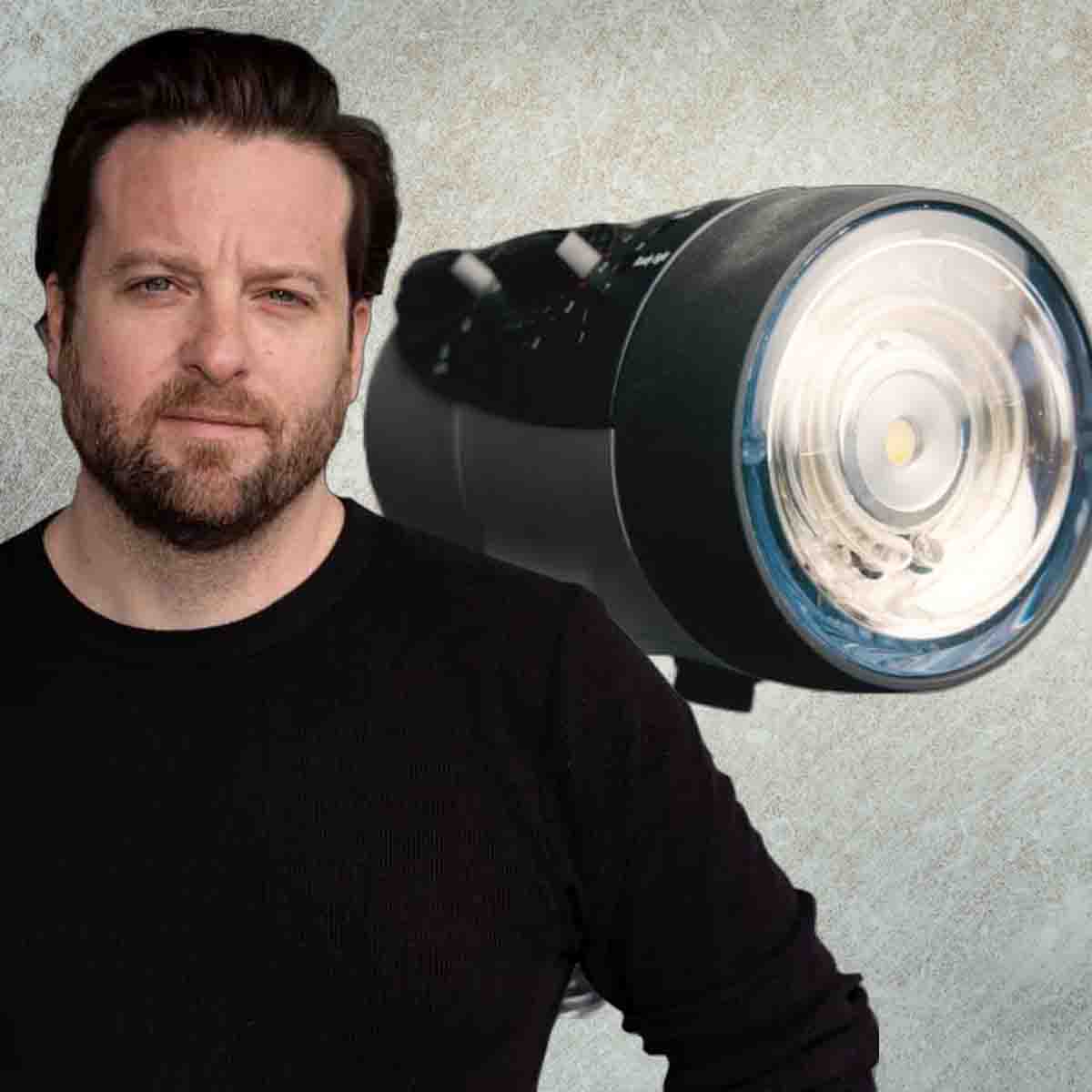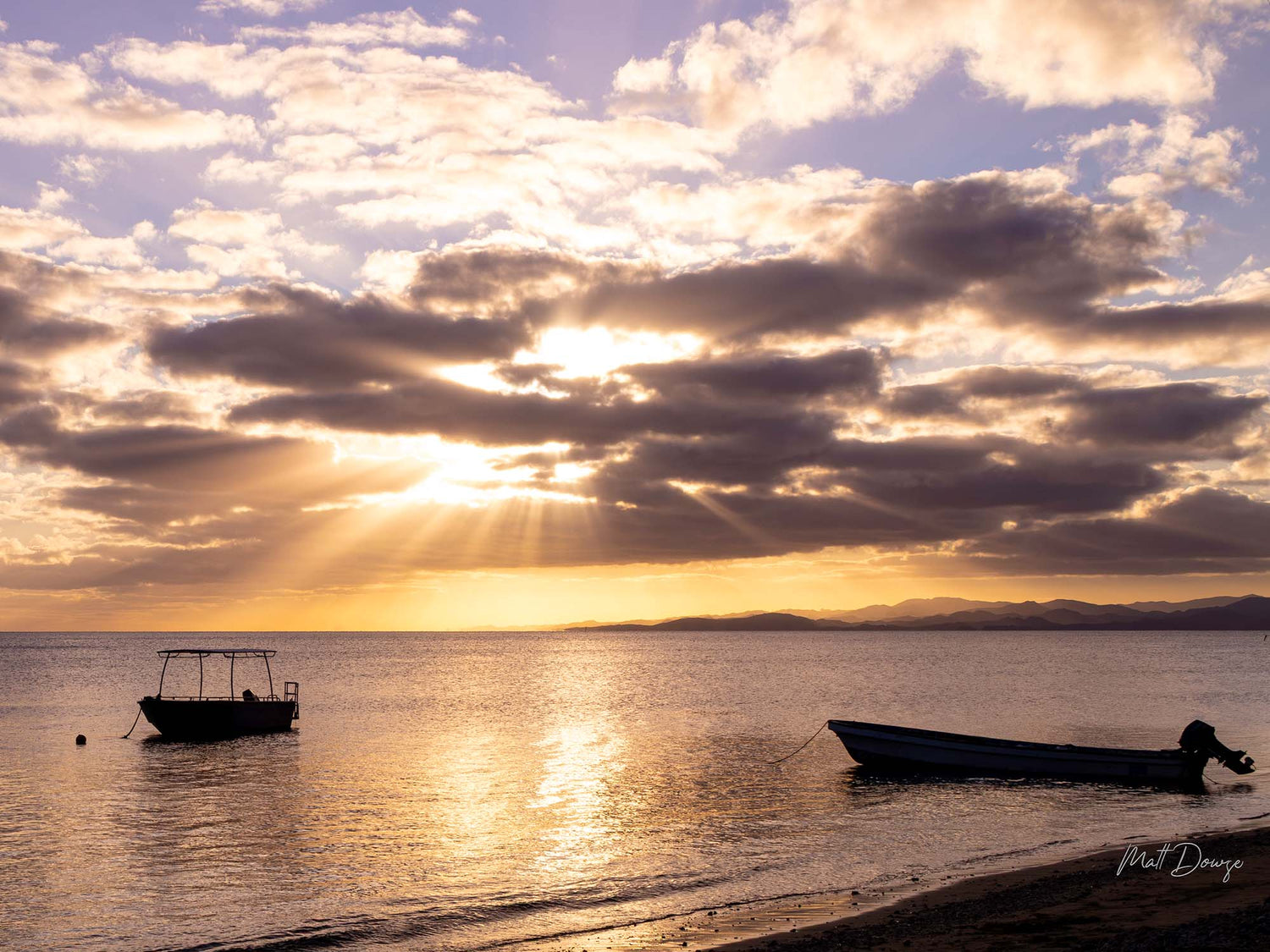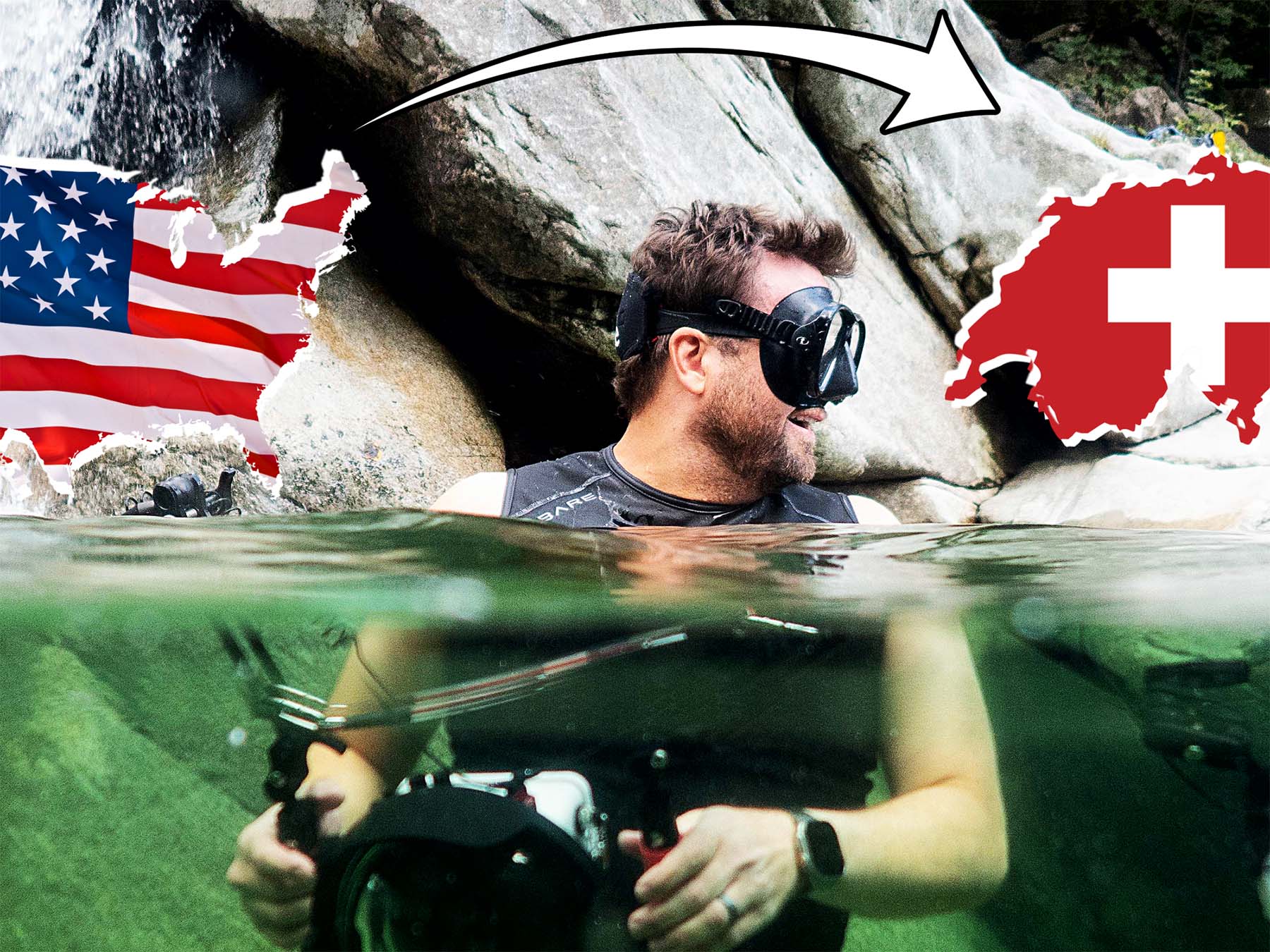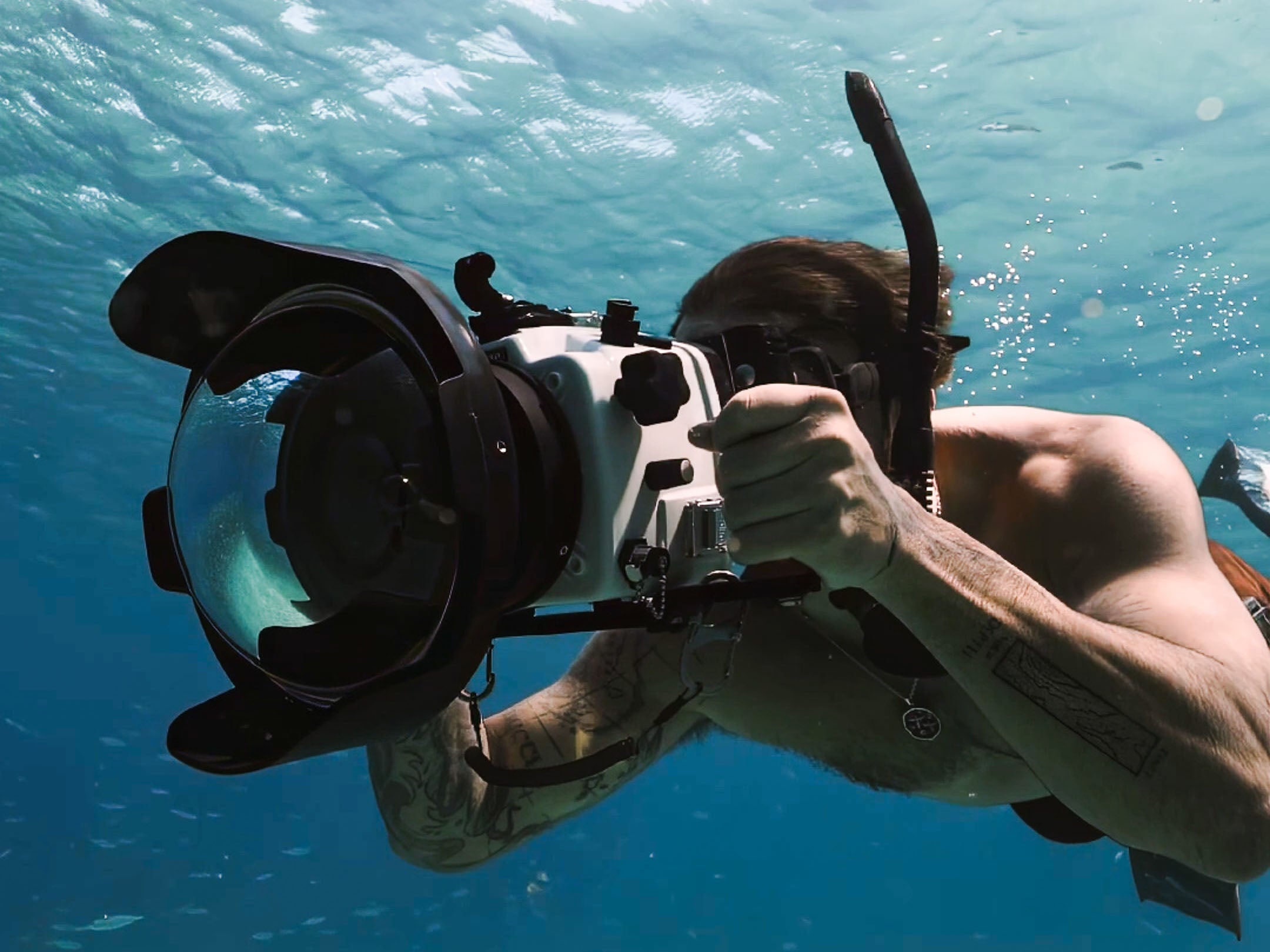By Matt Dowse
Almost two years ago, I began planning a dive trip to Fiji to experience the legendary shark dive at Beqa Lagoon, a dream destination for divers worldwide. After months of anticipation, the journey finally began on the morning of 5th July. Our group gathered bleary-eyed but excited at 3:00 am in Sydney Airport, ready to check in for our 6:00 am flight to Nadi, Fiji. The early hour did little to dampen the energy in the group; the promise of warm waters, vibrant reefs, and the chance to come face-to-face with some of the ocean’s most powerful predators was more than enough to keep spirits high.

Tiger shark // Canon EOS R7 + RF-S 18-150mm lens at 18mm • 1/100 • f/11 • ISO 320 © Matt Dowse
After landing, we were met by our bus for the journey to Pacific Harbour. Unfortunately, it was a small bus... for 21 people plus luggage, lucky they had a trailer. The 165 km (102 miles) drive took around 3.5 hours. From Pacific Harbour, we boarded two large aluminium catamarans for the final 45-minute crossing to Beqa Island. As the sun set, we arrived on the beach to the sound of the resort staff singing a traditional Fijian welcome. After a long journey, we had finally arrived, and it was immediately worth it.

Golden damselfish // Canon EOS R7 + RF-S 18-150mm lens at 60mm • 1/80 • f/9 • ISO 320 © Matt Dowse
The Group
The trip was open to like-minded divers and their families, creating an inclusive and friendly atmosphere from the start. In the end, we had a diverse and energetic group of 21 participants, which included 12 experienced divers eager to explore the underwater sights, and 9 non-divers who joined to enjoy the social and recreational aspects of the trip. The mix of divers and non-divers added variety to the experience, allowing for both underwater adventures and onshore activities, making it a well-rounded and enjoyable outing for everyone involved.

Variegated lizardfish // Canon EOS R7 + RF-S 18-150mm lens at 129mm • 1/80 • f/16 © Matt Dowse
Day 1 | Checkout Dives
The first dive day began with a check dive at the site used for shark feeding. The water clarity was moderate, offering visibility of around 20–25 meters, though the water appeared somewhat milky, which was a bit disappointing given the crystal-clear conditions I had expected in Fiji. As we approached the site, a few tawny nurse sharks gracefully swam near the boat, their calm presence setting an exciting tone for the day. On the bottom, a couple of bull sharks briefly joined us, their powerful forms gliding past, but they quickly departed once they realized no food was coming their way. The dive provided a chance to reacquaint myself with underwater environment.

Fiji tomato anemonefish // Canon EOS R7 + EF 100mm lens • 1/125 • f/13 • ISO 200 © Matt Dowse
Our second dive took us to Seven Sisters, a reef known for its distinctive features. The highlight of this dive was a small swim-through that invited exploration, and we were fortunate enough to spot a resident ribbon eel peeking out from its burrow, adding a touch of colour and intrigue to the scene. The reef itself was vibrant, with coral formations of varying shapes and sizes providing shelter for schools of tropical fish that we observed weaving between branches and ledges. Although this dive was still relatively gentle and served as an introductory warm-up, it offered plenty of opportunities to practice photographing marine life and observing subtle behaviour of the reef’s inhabitants. By the end of the day, I felt mix of excitement and anticipation for the more challenging dives that awaited.

Ribbon eel at the Seven Sisters dive site // Canon EOS R7 + RF-S 18-150mm lens at 100mm • 1/8 • f/10 • ISO 320 © Matt Dowse
Day 2 | Drift Diving
Conditions picked up dramatically on day two, with rougher seas and strong currents sweeping through the western side of the lagoon. Our first dive was a thrilling drift from John’s Tunnel to The Golden Arch. The visibility was outstanding, around 40 meters, allowing every detail of the dive to shine. The reef was alive with colour - soft corals swayed gently in the current, delicate sea fans stretched skyward, and schools of small reef fish darted in synchrony, creating a mesmerizing underwater ballet. The combination of excellent visibility, abundant marine life, and dynamic topography made it a truly memorable dive.

Red firegobby // Canon EOS R7 + RF-S 18-150mm lens at 111mm • 1/80 • f/16 • ISO 320 © Matt Dowse
The second dive took us to a small wreck just offshore from the resort. Here, conditions were a stark contrast - visibility dropped to roughly 8 meters, and the currents were less predictable. Exploring the wreck itself was enjoyable; its structure provided plenty of nooks and crannies to investigate, hinting at the history it held beneath the surface. However, I found my attention drawn more to the surrounding reef, which seemed to burst with life and colour even in the lower visibility. Corals of all shapes and hues clung to the rocky outcrops, and fish of every size and pattern flitted between them, proving that even when conditions aren’t perfect, the underwater world never fails to impress. By the end of the day, the stark contrast between the two dives highlighted the diversity and richness of the area.

South seas demoiselle // Canon EOS R7 + EF 100mm lens • 1/125 • f/13 • ISO 200 © Matt Dowse
Day 3 | Wrecks & Reef
Our first dive took us to a sunken Chinese trawler, a hauntingly beautiful relic resting on the seafloor. While much of the group gravitated toward the surrounding reef, captivated by its schools of barracuda, swaying sea fans, and intimate swim-throughs, Paul couldn’t resist exploring the wreck itself. Its rusting metal hull and barnacle-encrusted surfaces had a rugged, almost sculptural charm, offering a striking contrast to the vibrant life on the reef nearby. The dive provided a fascinating combination of natural and man-made features, each telling its own story beneath the waves.

Electric fileclam // Canon EOS R7 + RF-S 18-150mm lens at 64mm • 1/80 • f/13 • ISO 320 © Matt Dowse
The second dive brought us to Circus-Circus, a site dominated by a massive coral bommie bursting with colour and activity. Fish of all shapes and sizes wove through the coral branches, creating a living mosaic that was endlessly captivating. The standout moment of the dive was spotting a mantis shrimp, its vivid colours and rapid movements drawing instant attention. Yet it wasn’t just a single creature that made this dive remarkable the sheer density and diversity of marine life transformed the site into a true diver’s playground. Every turn revealed something new, from tiny gobies hiding in crevices to schools of mid-sized reef fish darting through the currents, making it a dive that combined both spectacle and intimacy with the underwater world.

Peacock mantis shrimp at the Circus-Circus dive site // Canon EOS R7 + RF-S 18-150mm lens at 150mm • 1/80 • f/14 • ISO 320 © Matt Dowse
Afternoon Reef Dives
My colleague Graham and I managed to fit in a few shore dives during the afternoons. Although visibility was limited to around 5 meters, the waters were teeming with marine life, providing plenty of interesting subjects to photograph. Despite the restricted view, the abundance of critters kept the dives engaging and offered some great opportunities for close-up shots and detailed underwater photography.

Orangelined cardinalfish // Canon EOS R7 + EF 100mm lens • 1/80 • f/14 • ISO 320 © Matt Dowse
Shark Dives | The Main Event
Beqa Lagoon is world-famous for its shark dives, particularly its encounters with bull and tiger sharks. We had booked one day of double shark dives, but I was keen to do more. After speaking with the dive operation, I learned that extra spots on the shark boats could be filled if available. Thanks to this, some of us managed three days of shark diving.
How It Works
The dive site is a submerged pinnacle on the reef edge. Boats moor, and divers descend to a rock wall at 20 meters. Behind the wall, divers kneel while the wranglers prepare the feeding station: a large aluminium box containing tuna heads. The tuna is brought in on a separate boat and transferred in a wheelie bin.
One wrangler is the designated feeder, flanked by two others tasked with keeping bull and tiger sharks at bay. Behind the line of divers, one safety diver per four guests keeps watch, fending off curious sharks and reining in overenthusiastic divers (there’s always one trying to pat the sharks, none from our group, thankfully).

Tiger shark // Canon EOS R7 + RF-S 18-150mm lens at 18mm • 1/100 • f/11 • ISO 400 © Matt Dowse
By the time we descend, the sharks are already circling. Only the tigers are hand-fed, the rest circle and wait, hoping. When a tiger arrives, the feeder holds a tuna head in front of it, the shark chomps down and swims away unpredictably, often over the heads of the divers. It’s wild, unscripted, and utterly exhilarating.
We usually saw two tiger sharks per dive, with one dive giving us three. A few weeks before our visit, the site had seen 8–10 tigers at once, a number too high for safety, and dives were temporarily suspended. That would have been something to witness.
Alongside the tigers, there were often 40+ bull sharks, dozens of tawny nurse sharks, and reef sharks, all mixing in a frenzy of motion, accompanied by thousands of fish scavenging for scraps. After 25 minutes, a bell signals the end, and we back out toward the safety stop ropes at 3 meters. An hour later, we do it all again.
Visibility on the shark dives ranged from 30 to 40 meters — ideal for this type of diving.

Tiger shark and companion remora // Canon EOS R7 + EF-S 10-22mm lens at 22mm • 1/80 • f/8 • ISO 400 © Matt Dowse
Final Thoughts
The diving was only part of what made the trip memorable. The staff, both in the water and on land, were among the friendliest people I’ve ever met. Their warmth and hospitality made it feel like we were being welcomed into their home. The food, accommodation, and extra activities were excellent, and even the non-divers in our group had a fantastic time.
Beqa Lagoon Resort is a world-class dive destination. If you’re a diver looking for unforgettable shark encounters, and genuine island hospitality, I can’t recommend it highly enough.

Leopard blenny // Canon EOS R7 + RF-S 18-150mm lens at 150mm • 1/80 • f/10 • ISO 320 © Matt Dowse
Additional Viewing
Bringing Out the Colors of Fiji: "Soft Coral Capital of the World"
Diving Fiji by Liveaboard | Brilliant Bligh Water
Shark Feed Underwater Camera Settings and Technique
Featured Customers | Matt Dowse From the Canon 7D to the Canon R7
Canon RF-S 18-150mm f/3.5-6.3 IS STM Lens Micro-Review & Results
Close Encounters: Photographing Tiger Sharks in the Maldives

Matt Dowse is an electrician, diver, and underwater photographer. He has been diving since 1990 and completed his PADI Divemater's course in 2008. He's been a Canon DSLR 7D shooter since 2010 and recently upgrade to the Canon R7 mirrorless system which he pairs with the Ikelite DS160 dual strobes. When he's not traveling to dive you can find him at the Swansea Bridge in Australia. Follow Matt on Instagram @matt.d71, watch Matt and his colleague Pete's underwater videos on their YouTube channel, Vimeo, or check out Matt's Redbubble page.



